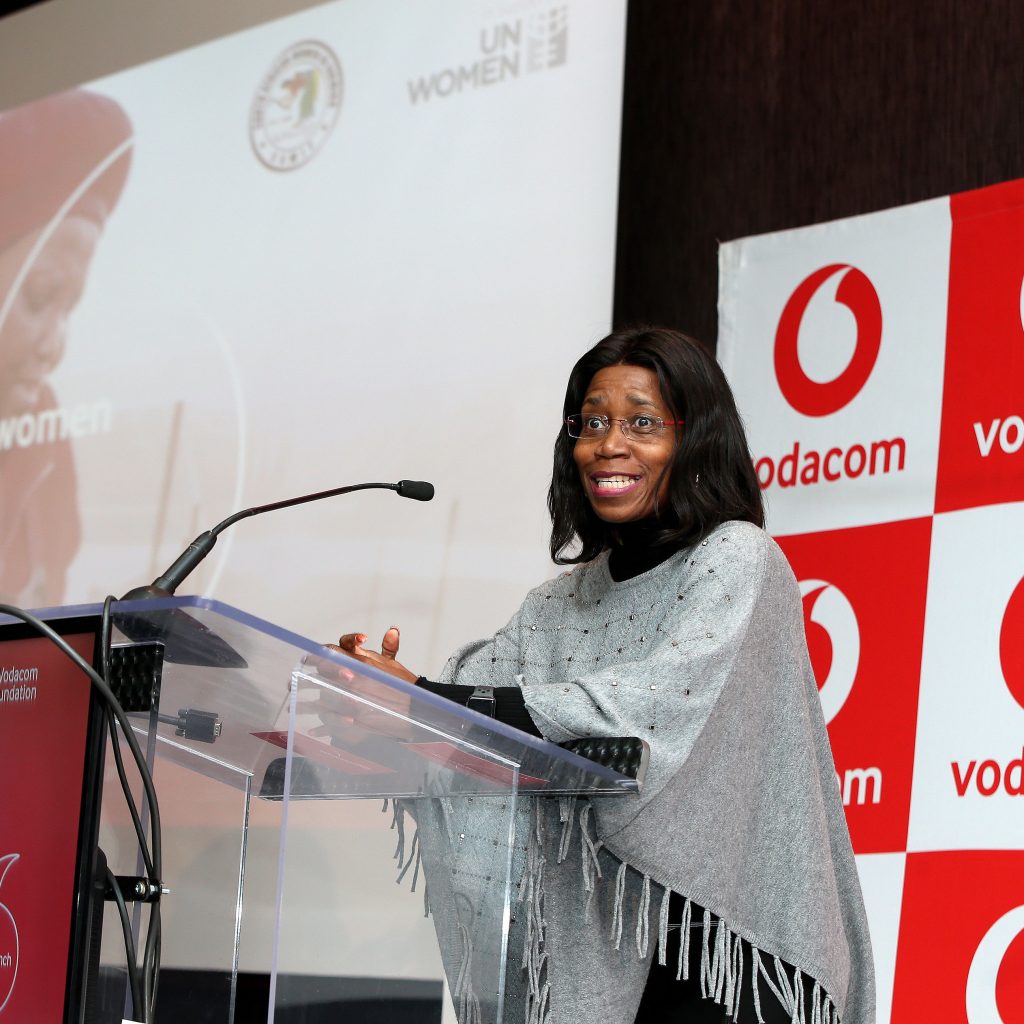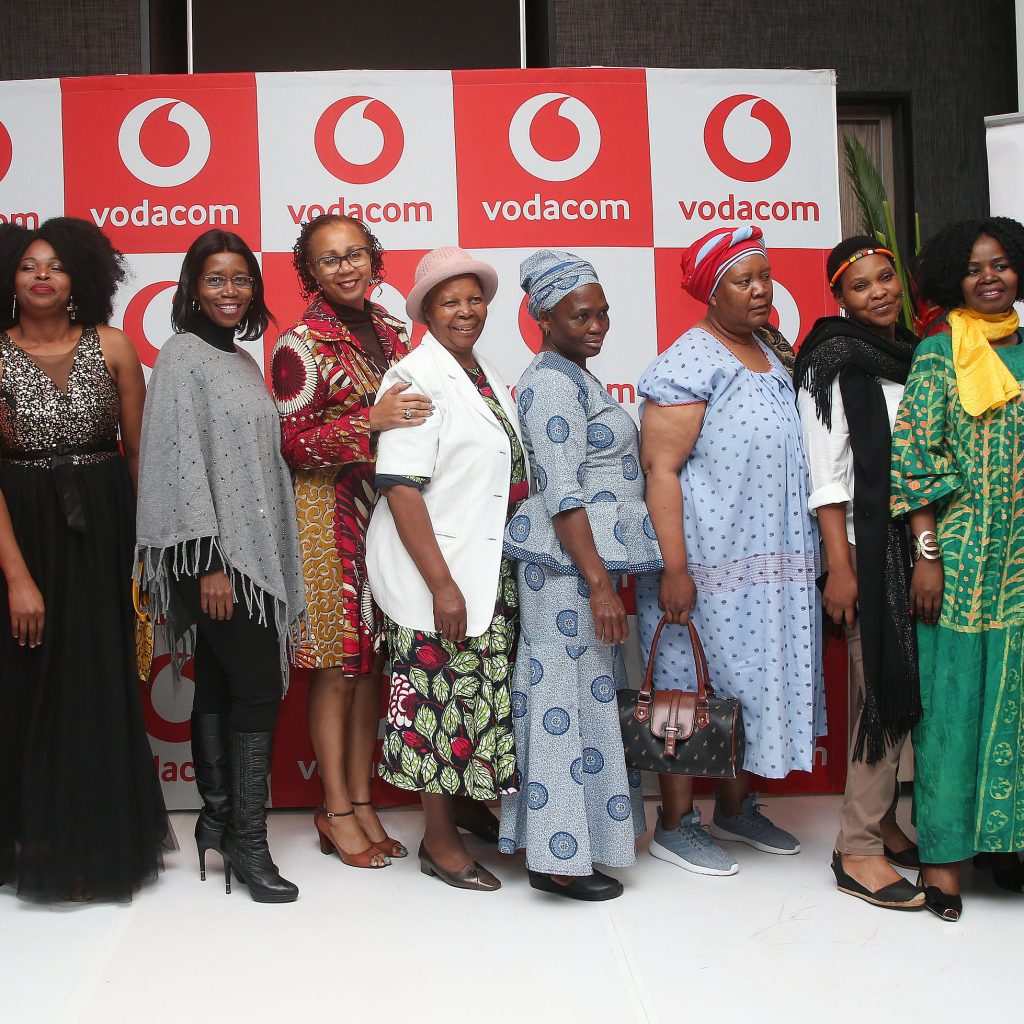Nie Cele

As part of last month’s women celebration, Vodacom Foundation, in partnership with UN Women and South African Women in Farming (SAWIF) formally launched the much talked about Women Farmers Programme countrywide at The Capital Park Hotel in Sandton.
The programme leverages Vodacom’s ICT capabilities to train women from rural areas in digital literacy to enable them to use Connected Farmer App technology to connect to more business opportunities.
This Connected Farmer App is also tailor-made not only to provides live, real-time information on what farmers are producing in different regions, but will also help to ensure that small scale female farmers participating in the programme have access to input and output markets.
This follows the successful pilot programme that fruitfully equiped over 600 that women small-holder farmers with digital skills literacy in rural areas of Limpopo and KwaZulu since its introduction in 2018.
Organizers revealed that the aim was to drive them to take full advantage of the economic benefits offered by the Digital Revolution and successfully participate in the agricultural value chain.
According to giant cellphone service provider foundation, this initiative is aimed at transforming the face of South Africa’s smallholder agricultural segment to reflect all citizens of the country and create a more inclusive agricultural economy for women who come from poor communities.
Furthermore this Women Farmers Programme is tailormade to equip women, especially those from underprivileged backgrounds, with the digital skills for today’s digital economy to meaningfully participate in the mainstream economy.

It was also noted that Gender inequality in the agricultural sector is effectively depriving the industry of the benefits that come from women participating equally in the sector including food security, job creation and income generation.
Takalani Netshitenzhe, Chief Officer, Corporate Affairs at Vodacom Foundation is on record arguing that the foundation is committed to empowering women to reach their full potential adding that Women Farmers programme is a direct manifestation of this commitment.
“With this initiative we will be able to support female farmers in staking their claim in the agriculture sector through the use of technology, which in turn can help to reduce poverty, ensure food security and boost the industry’s contribution to the economy.”
On the sidelines, Netshitenzhe told this publication that Mzansi was a dynamic country that have men who are not selfish, pointing out that they are supporting women to claim their status in society using technology.
“With this initiative we will be able to support female farmers in staking their claim in the agriculture sector through the use of technology, which in turn can help to reduce poverty, ensure food security and boost the industry’s contribution to the economy,” said Netshitenzhe.
UN Women South Africa Multi-Country Office Représentative, Anne Githuku-Shongwe told the packed audience that Investing in women farmers has the potential to unlock economic growth.
“We know that globally women make up the majority of small-holder farmers and if women had access to the same resources as men, they would increase their output by 30%.
“We are glad that the Foundation has come on board to provide critical digital literacy skills training and ICT equipment to women farmers. This partnership together with the World Food Programme and SAWIF is an important step in ensuring that women farmers, particularly small-holder farmers in rural areas are equipped with the tools and knowledge to successfully participate in the agricultural value chain.”
Deborah Motuku, President of SAWIF, told the audience that her organization was excited to see women play a central role in the agriculture value chain, supply and produce to both the local and international markets.
“ Since we partnered with Vodacom and UN Women we feel very confident that we will achieve our dreams. The Digital and financial training from Vodacom is preparing us for bigger things and we are now confident in using digital platforms to transact, communicate and market our produce. We are grateful for all that Vodacom has and still going to do for us. We wait in anticipation for the Connected Farmer App which will offer us a bigger suite of services and open up markets for our produce,” Motuku argued.
DID YOU KNOW?
- The App introduced in 2016 by the enterprise business is being customized to meet the needs of the women farmers and is implemented in four phases.
- The first phase is providing digital literacy to the farmers to prepare them for the use of the App.
- The second phase would be to digitize the SAWIF Women farmers’ database and to connect the farmers with the retailers.
- The next phase would be to minimize the role of SAWIF by giving the women direct access to the markets.
- The last phase would be to integrate Vodacom’s financial services offerings. With these suite of services, the women will have a wider choice to transact and to be empowered through technology.
- A study by the World Economic Forum shows that women account for nearly half of the world’s smallholder farmers and produce 70% of Africa’s food.
- The Department of Agriculture, Forestry and Fisheries states that the value of agriculture production in South Africa increased by 4.7% and was estimated at R281 370 million in 2017/18, while its contribution to the GDP was estimated to be R90 458 million at nominal prices in 2017.

